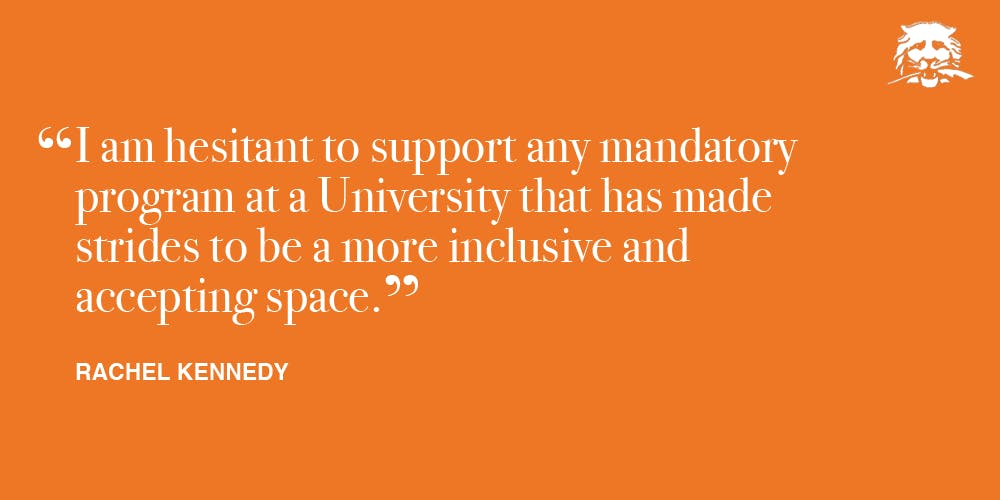The Princeton University Board Plan Review Committee has been reviewing dining hall options for the past two years, and this week released a memo detailing possible changes for both under and upperclassmen. This proposal replaced the current options available with a mandatory “Unlimited” package for first-years and sophomores, and a mandatory “Community” meal plan for juniors and seniors not involved in the eating club system. This plan is less considerate of the diverse needs and wants of students than the current system and is out of step with undergraduate life.
There are currently three plans first-years and sophomores can choose from, each varying in the amount of dining hall swipes and pricing. Ranging from $6,285–$6,840, the plans are consistent with other college meal plan prices, but at least students get to choose based on what they and their families are comfortable with. This flexibility is something the Board Plan Review should respect and uphold.
Proposed options for juniors and seniors are just as limiting, as the Community plan would apply to all of those not in eating clubs. Much less expensive than the $6,630 underclassmen plan, the $2,500 upperclassmen plan aims to “reduce the stress associated with sophomore spring” — the season of bicker and sign-in for eating clubs and co-ops. While this is an important goal, the Review Committee should focus in a way that does not target student’s decisions to enroll in co-ops or becoming independent, popular alternatives to dining halls and eating clubs.
While the plan aims to foster more cohesive communal eating spaces, it threatens late meal — the meal most conducive to community building. The memo that has been circulating slyly slips that “need for Late Meal swipes” would be limited under the new plan. The Committee is failing to see how late meal functions as a bridge for many different spheres of undergraduate life. From athletes finishing practice to those staying up to study in McGraw, late meal provides a centrally located, bustling, and entertaining environment not readily available anywhere else on campus. Especially for first-years, this provides an opportunity to interact more freely than the dining halls, enabling students to bounce from table to table and meet each other in a low stress, high energy space. Whether I have attended late meal prior to heading to Firestone, or following a night out on the Street, I always look forward it and know many would feel the absence of this community feel if late meal were to be if it were stripped from their daily or weekly routine.
Late meal facilitates campus connections and lively discussions, as well as the consumption of fried food and pizza. There is nothing wrong with a little self-indulgence here and there, but I understand everyday trips to the impressive quesadilla bar may not be the best choice. Although the University should encourage healthy eating, curbing access to late meal is not the right method. Fried food and ice cream are still available at all the dining halls, and students should learn how to forgo comfort food every once in a while, despite having constant access to it. There is at least one McDonald’s in most American towns, and any trip to the grocery store or pharmacy presents an opportunity to indulge in chips or some candy. These are the temptations of everyday life, and students should learn to take ownership of their health. While the University should sponsor healthy snack options for study breaks and promote the benefits of healthy eating through posters, it should also be aware limiting late meal does not actively impact students’ diets.
As many features of the proposed plan seemed to contradict what I think to be students’ favorite aspects of the dining hall experience here, I researched how many students were in fact on the committee. I give the Review Board credit for having a very easy to use website that does speak to its commitment to transparency, but what I found about “The Committee” plan was more disappointing than I had anticipated. On a committee of 23 members, only three are students. The University should be very aware of which aspects of student life are impacted when planning to curtail the freedoms of students. Three voices are not sufficient to research, communicate, and advocate for the viewpoints this student body. The Committee should either grow to maintain an even ratio of administrative and student voices or replace non-essential administrators with student leaders.
As a first-year, I have not experienced the evolution of dining options that happens following bicker and sign-in period for eating clubs and understand that looms as an experience that informs many of the feelings regarding student life, and especially the necessity of eating at Princeton. But I am hesitant to support any mandatory program at a University that has made strides to be a more inclusive and accepting space. Although well-intentioned, this proposal seems to place more limitations on students rather than facilitating student’s growth towards making healthy decisions for themselves.
Rachel Kennedy is a first-year from Dedham, Mass. She can be reached at rk19@princeton.edu.








